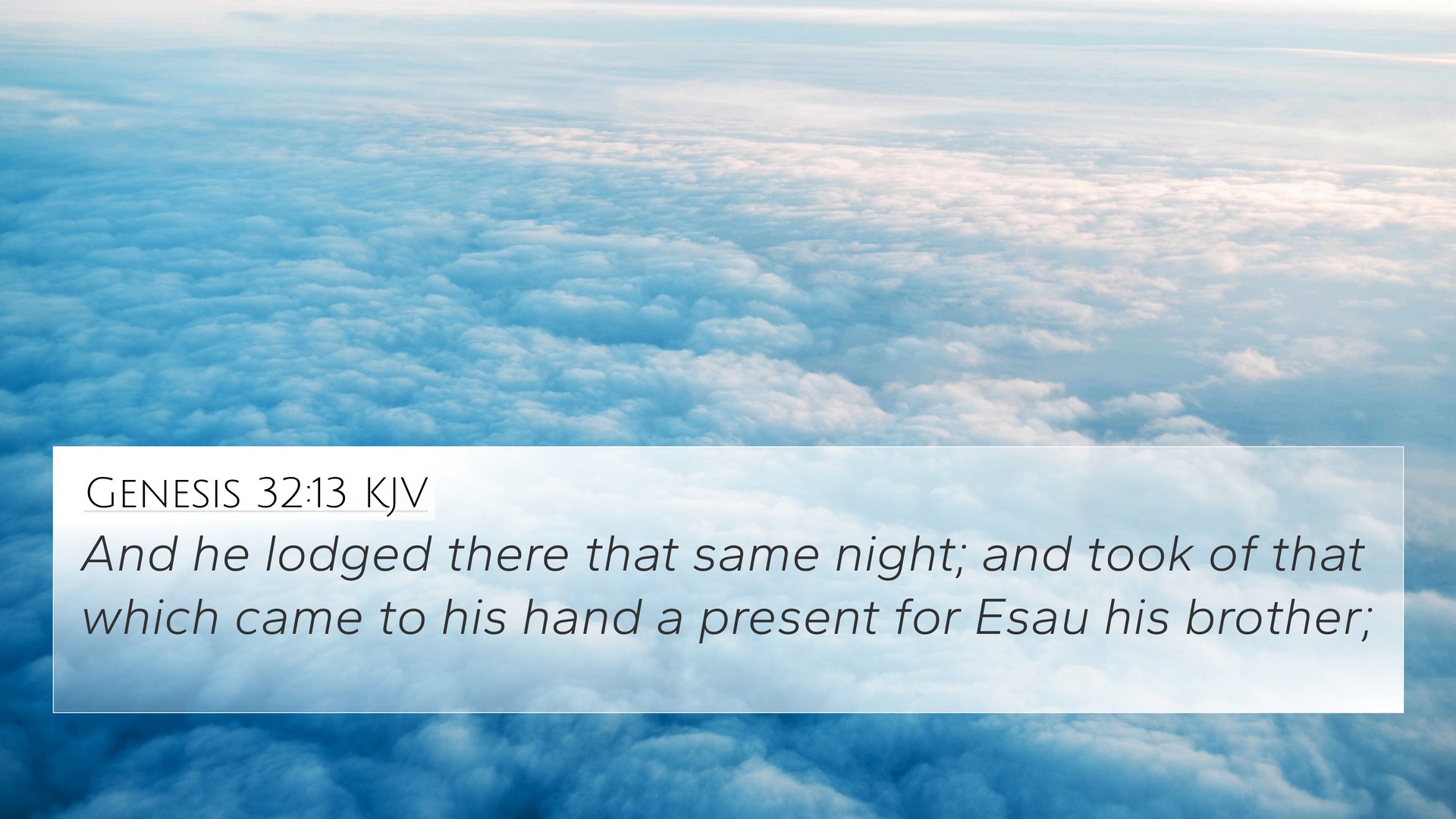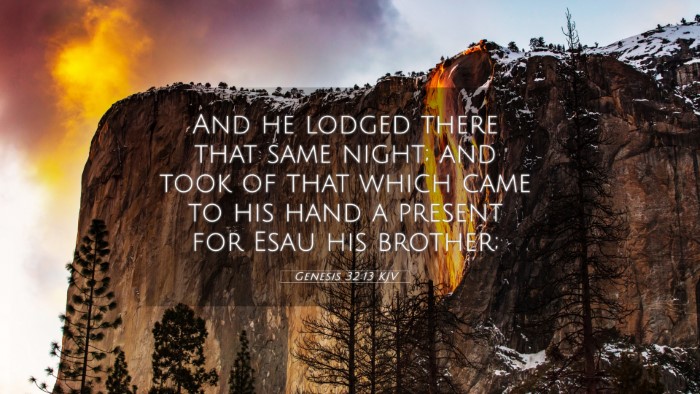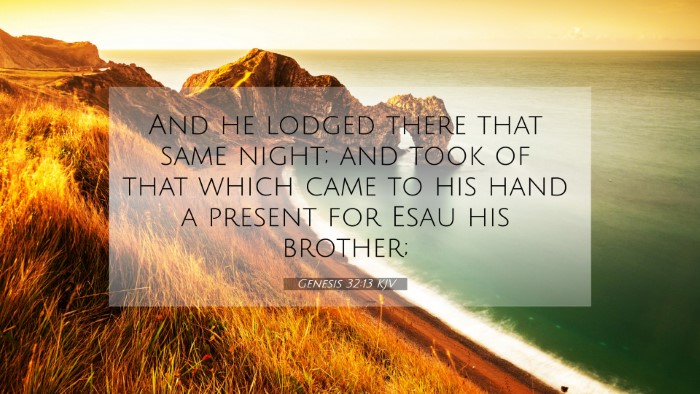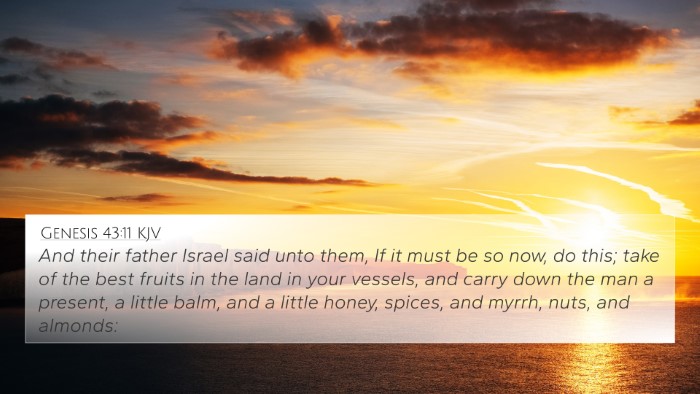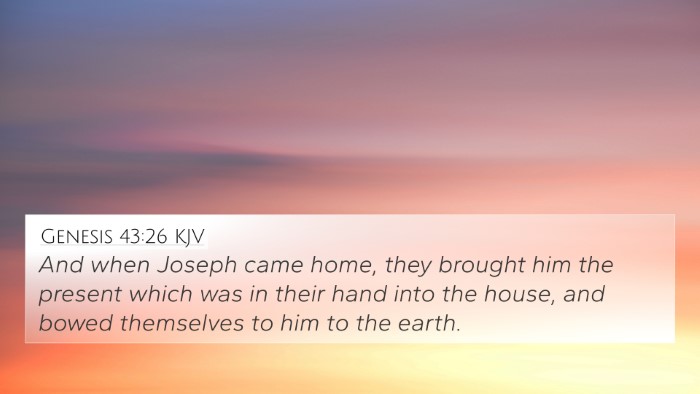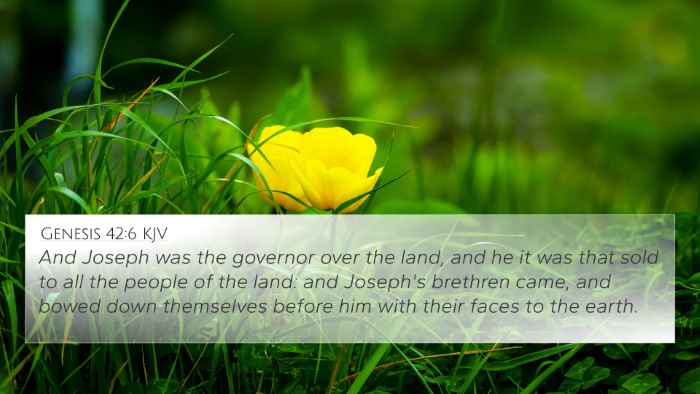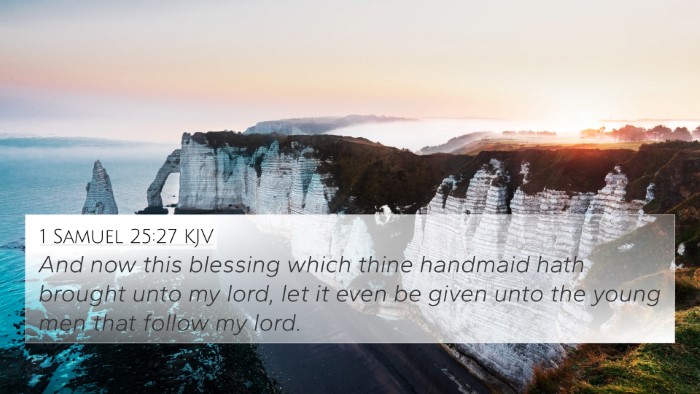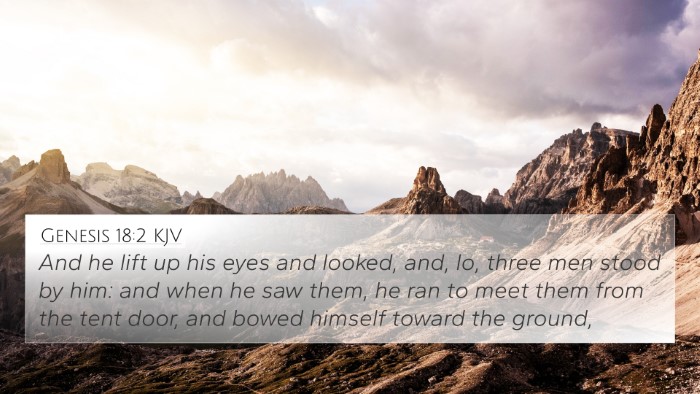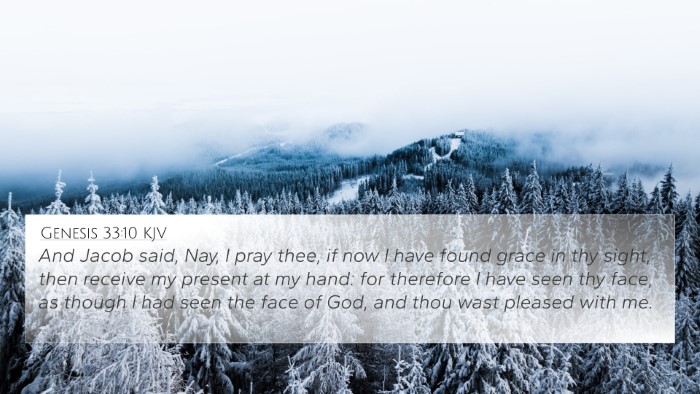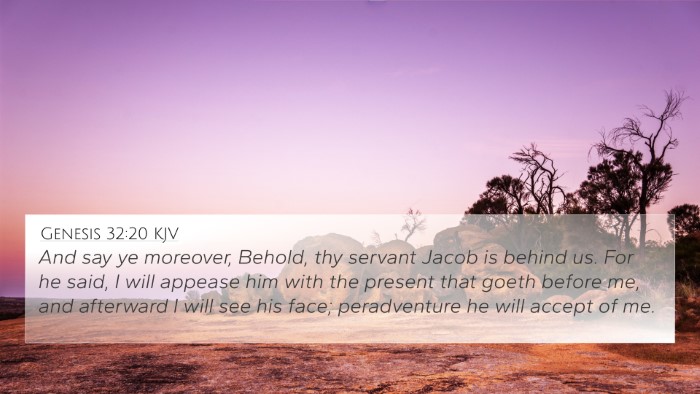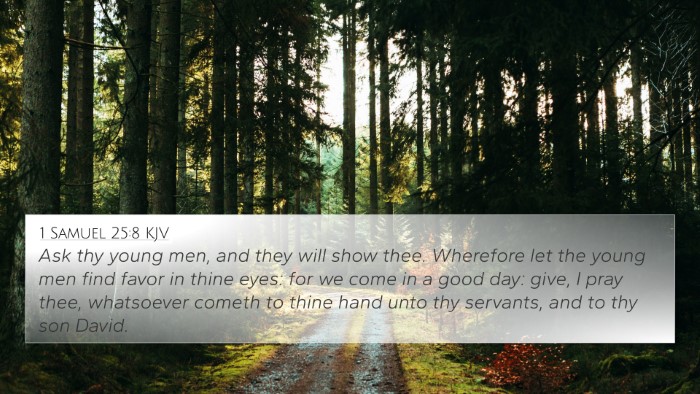Understanding Genesis 32:13
Genesis 32:13 states: "And he lodged there that same night; and took of that which came to his hand a present for Esau his brother." This verse occurs at a pivotal moment in Jacob's journey as he prepares to meet his estranged brother Esau after many years apart.
Contextual Analysis
This verse is set against the backdrop of Jacob's return to Canaan after a long exile due to conflict, particularly stemming from his earlier deceit towards Esau (Genesis 27). Jacob's fear of Esau's potential wrath prompts his actions.
Commentaries Insights
Matthew Henry's Commentary
Matthew Henry emphasizes Jacob's intention to pacify Esau through gifts, reflecting on the principle of reconciliation. He points out that Jacob's offering reveals his humility and concern for smoothing over their fractured relationship.
Albert Barnes' Notes
Barnes notes the significance of Jacob preparing a present, illustrating Jacob's desire not just for reconciliation, but also for the restoration of familial bonds that had been deeply wounded. The choice of gifts indicates careful thought and consideration on Jacob's part to appease Esau.
Adam Clarke's Commentary
Adam Clarke suggests that the gifts represent a token of Jacob's transformation and growth. He underscores that this action not only seeks forgiveness from Esau but also symbolizes a turning point in Jacob's life, illustrating his reliance on God’s provision and mercy.
Thematic Connections
Genesis 32:13 can be linked to various themes within the Bible, such as:
- Reconciliation and Forgiveness: The effort Jacob makes can be seen as a precursor to the teachings of Jesus in the New Testament about loving your enemies (Matthew 5:44).
- Humility in Restoration: Jacob's gifts signify humility, mirroring the humility Jesus exemplified (Philippians 2:5-8).
- Divine Providence: Jacob’s encounter symbolizes God’s faithfulness to His covenant, much like the promises in Jeremiah 29:11.
Cross References
Genesis 32:13 connects to several key Bible verses that enhance our understanding:
- Genesis 27:41-42: Esau's wrath and Jacob's flight from home.
- Genesis 33:1-4: The eventual reconciliation between Jacob and Esau.
- Matthew 5:23-24: Jesus' teaching on reconciliation with others.
- Luke 6:31: The principle of treating others as you wish to be treated.
- Deuteronomy 22:1-4: Principles of helping a brother when he is in need.
- Ephesians 4:32: The call to be kind and forgiving to one another.
- Romans 12:19-21: Overcoming evil with good.
Conclusion
Genesis 32:13 serves as a reminder of the importance of seeking reconciliation and the transformative power of humility. Through cross-referencing this verse with others, one can appreciate the broader biblical narrative that emphasizes forgiveness and restoration of relationships.
SEO Recommendations
For those seeking to deepen understanding through cross-referencing Biblical texts, it can be helpful to utilize resources such as a Bible concordance or cross-reference Bible study guides. These tools assist in uncovering connections between Bible verses and help in identifying connections between Old and New Testament themes.
Inter-Biblical Dialogue
Reflection upon biblical themes through references in publications enables a rich exploration of how the Old Testament narratives correlate with New Testament teachings. Notably, Jacob’s story and actions resonate with New Testament principles around reconciliation and divine providence.
